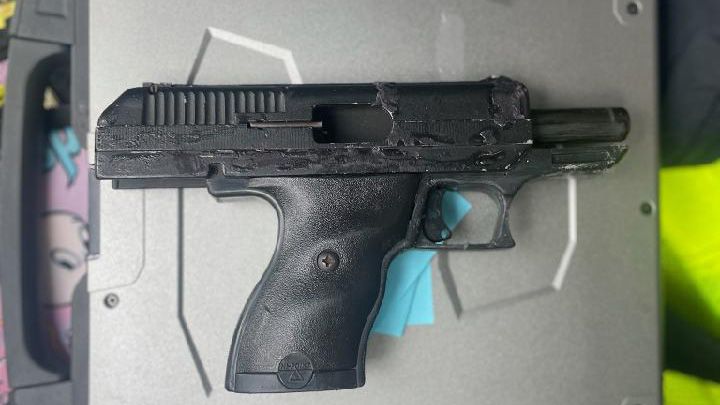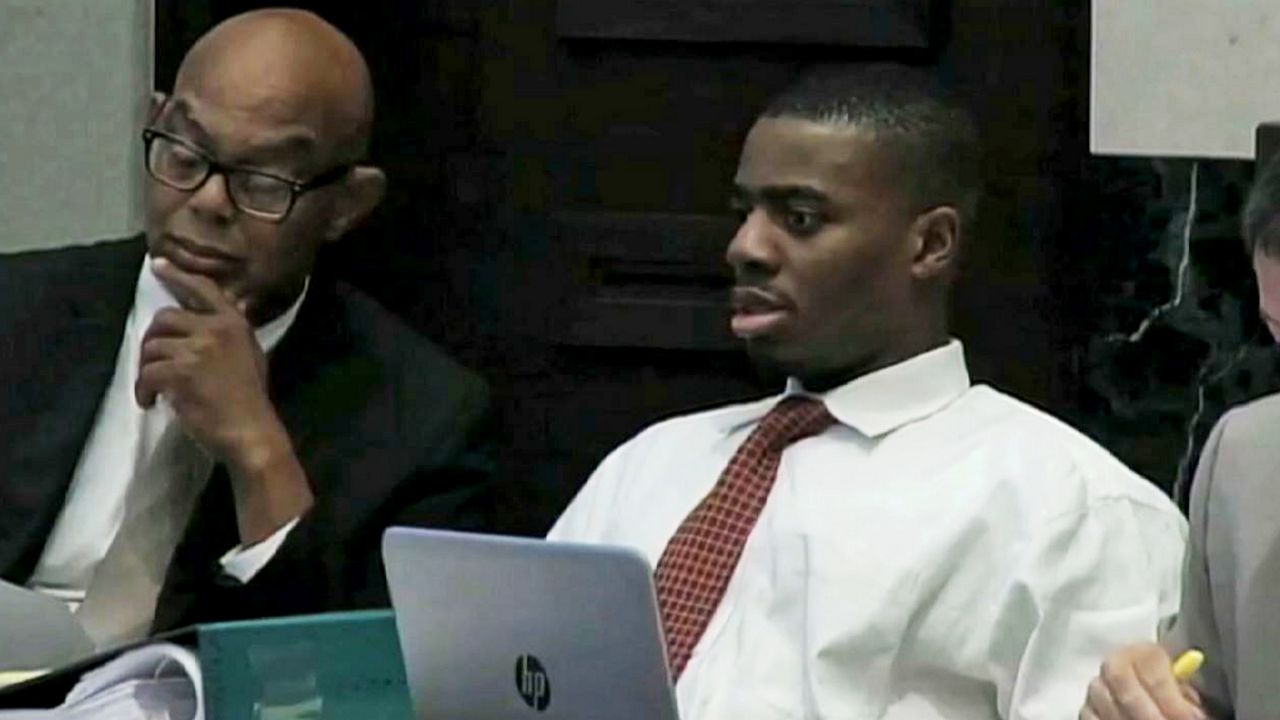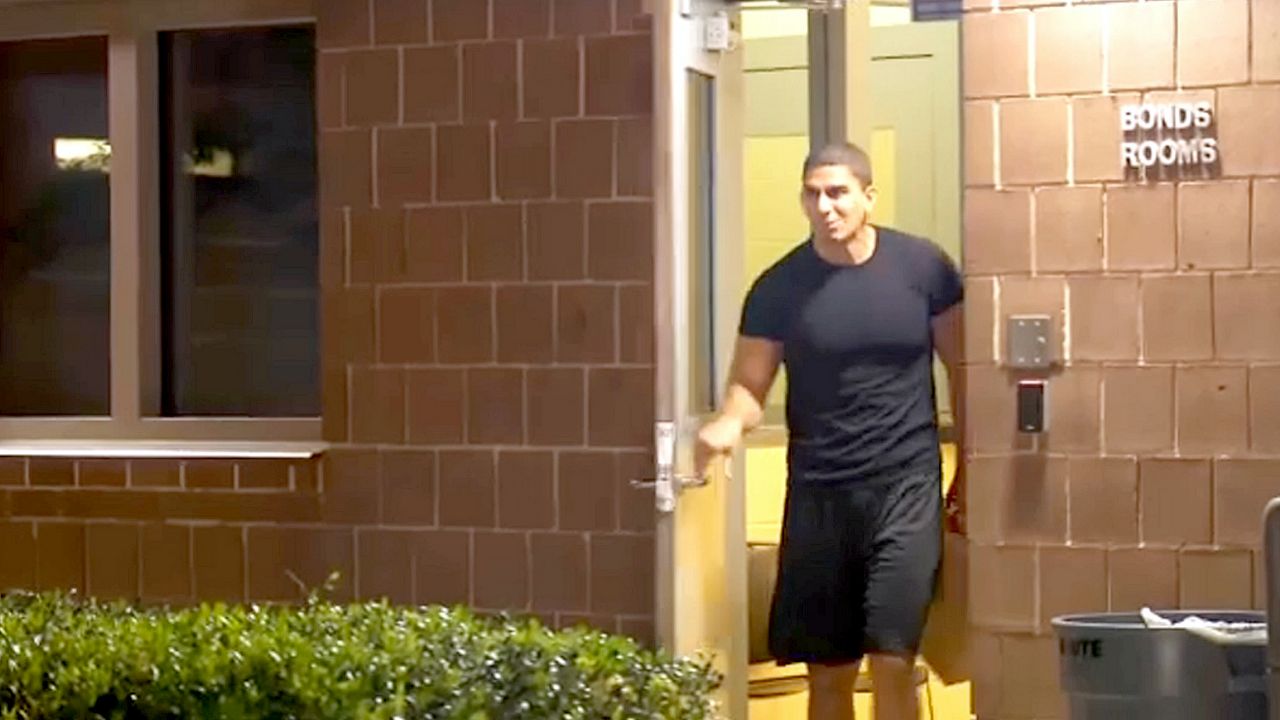ORLANDO, Fla. — An Orange County grand jury released its recommendations this week after investigating the circumstances that led to 32-year-old Rachael A. Ellis' shooting death on July 14, 2023.
Investigators say Orlando police officers responded to the 12000 block of Pioneers Way after Ellis' boyfriend reported she had a knife and was talking about killing herself and any police officer sent to intervene.
Ellis was ultimately shot and killed when she charged at officers while brandishing a pair of knives, police say.
While the grand jury found that the officers acted lawfully, it was further tasked with determining if anything could have been done at the time to prevent Ellis' death.
After hearing evidence three times in 2024, the grand jury issued its report on Tuesday, and with it, several recommendations for future encounters with someone experiencing a mental health or behavioral crisis.
Acknowledging the Orlando Police Department's Community Response Team, the grand jury pointed out that the team "does not currently have the staff needed to provide the citizens of the city of Orlando '24/7' availability to this important resource."
"This resource issue that limits the number of team members available to field and respond to calls, coupled with the very large area the city encompasses, can result in response times that are less than desirable for addressing our fellow citizens experiencing a crisis," the grand jury's report said.
Going on to say that it would be too dangerous to only send a civilian member of the CRT to a situation like Ellis', partnering a mental health clinician with officers as they responded to the scene "seems to be an option worth exploring after hearing the testimony."
"This way, sworn, armed law enforcement officers could more safely neutralize any threat of violence, while civilian team members could help prevent such a scenario from ever unfolding," the report said.
The grand jury also suggested sending plainclothes officers in unmarked vehicles when responding to a person in crisis.
"Paradoxically, the mere presence of the best people to protect the public from unwanted violence and unintentionally be a catalyst for violence," the report said. "Therefore, other options that may dampen the effects a 'police presence' can unintentionally cause are using plain clothes officers and unmarked cars."
"Sometimes the mere sight of a uniform carries the connotation that the person in crisis will be punished rather than assisted," the report continued. "Likewise, the thought of having friends and neighbors see the person in crisis being driven away in a marked car rather than an unmarked car may aggravate the situation as well."
In its conclusion, the grand jury acknowledged that "law enforcement is a very dangerous profession," and lamented that in recent years "our community has lost several law enforcement officers." The grand jury said it was its appreciation of the challenges of the job and the people who do it, "that drives us to make these recommendations in the hopes that needless risk to the safety of the officers and the public can be avoided in the future."
"We hope that city leaders consider expanding the CRT and consider the wisdom of bringing them 'in house' as city employees," the report said. "We also hope that city leaders consider the options of 'co-responding,' officers responding in plain clothes, and unmarked cars if they believe these changes would be useful."
OPD says some changes already made
In response to the grand jury's report, the Orlando Police Department said it had already worked to make several alterations to its Community Response Team — which has kept law enforcement from having to respond to calls involving around 2,500 people.
"Prior to the Grand Jury's Presentment, the OPD implemented or initiated changes to enhance the program," the department said in a statement. "These changes include hiring a Mental Health Intervention Program Manager to oversee the CRT, adding a clinician to triage calls in our communications center, and the creation of two in-house positions for CRT clinicians."
"These positions are in addition to the four clinician positions created earlier this year," the statement continued.
With the new resources, the department said it was in a better place to implement a "hybrid response model."
"This change would allow two clinicians as separate units to respond to higher risk cases as a co-responder with a sworn police officer, while continuing to respond to lower risk cases without a law enforcement presence," the statement said.
Forensic psychiatrist reacts to grand jury recommendations
Dr. Jeffrey Danziger, a forensic psychiatrist, said the recommended changes could help in some circumstances, but pointed out that implementation is key.
“Perhaps they look less fearsome if they’re not in uniform," he said of the recommendation to use plainclothes officers. "Can they have unmarked cars? If they’re adopted, sure, that’s a good idea. How feasible is that? Is there the money for that? I don’t know."
Watching body camera footage of the encounter with Ellis that was released by the Orlando Police Department last August, Danzinger said: “This is someone who is acting in a dangerous fashion, heedless of reason."
Danziger said he regularly goes to the Orange County Jail to evaluate people charged with crimes, and assess their mental state and how the justice system should address their case.
“Unfortunately, the Orange County Jail is the biggest mental health provider in Orange County,” he said.
Danziger says it’s necessary for law enforcement agencies like OPD’s Community Response Team to have a plan when interacting with people who may be in crisis.
“Individuals with mental health problems often run afoul of the law, their behavior, judgment and reasoning is distorted,” he said.
Danziger said that even if all the recommendations are put into place, some responses to mental health and behavioral crises may still be a challenge, and even the best plans don't work 100% of the time.
“Some people are simply too ill or too intoxicated to be reasoned with," he said. "But many people can be brought down. The situation can be decompressed."










